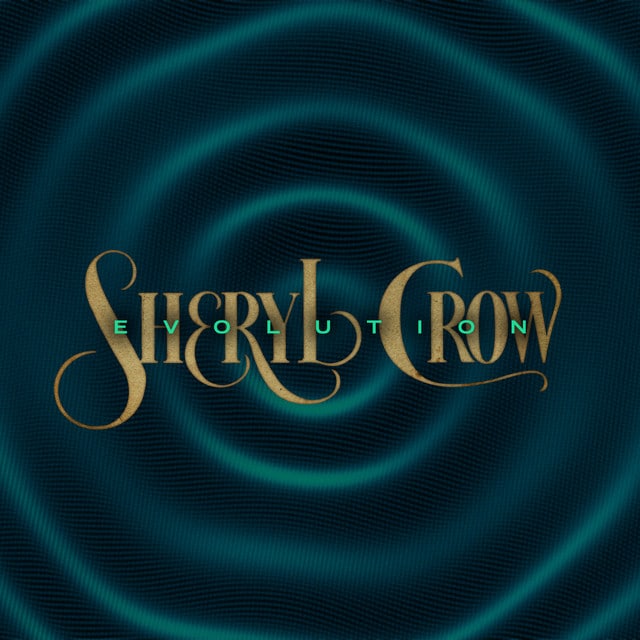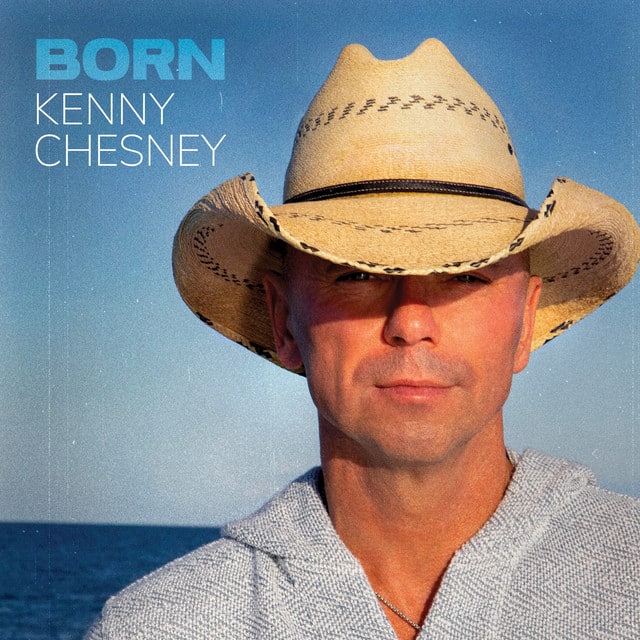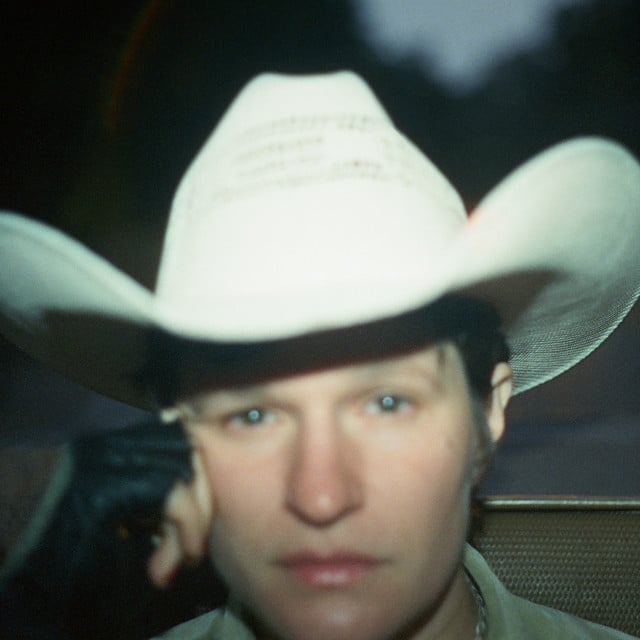Released: 2024
Label: The Valory Music Co.
Featuring: Peter Gabriel
When the name Sheryl Crow surfaces in the echelons of rock music, thoughts run wild to the sheer influence and depth she’s etched into the very fabric of the genre. With her characteristic blend of rock, folk, and country vibes, Crow has time and again proven herself to be a formidable figure in the landscape of contemporary rock music.
Enter “Evolution (Deluxe)”, her riveting 2024 album from The Valory Music Co. This body of work is an audacious testament to Crow’s enduring artistry, including collaborations with notable artists like Peter Gabriel. Striding through tracks like “Alarm Clock”, “Digging In The Dirt”, and “Do It Again”, we witness a celebration of rock in all its raw, unadulterated glory. Tunes like “Love Life”, and “You Can’t Change The Weather” speak volumes of Crow’s ability to weave profound human emotions into her gritty rock narratives.
No Sheryl Crow dissection would ever be complete without focusing heavily on her musical evolution; the aptly titled track “Evolution” ready to be scrutinized. All the way to the melancholic “‘Waiting In The Wings'”, we get a taste of Crow’s adeptness in marrying her deep, insightful lyrics with a rich, diverse musical canvas. Truly then, “Evolution (Deluxe)” is not just an album – it’s a reflection of a musical journey marked by resilience, evolution, and a steadfast commitment to rock ‘n’ roll.
So let’s get into it. From the audible tick-tock in “Alarm Clock” to the poignant last notes of “Waiting In The Wings”, here we are breaking down the album “Evolution (Deluxe)” by Sheryl Crow.
1 Alarm Clock
Shrouded in the trappings of luxury and excessive indulgence – the “Penthouse, Saturday, [and] guy who looks like Chalamet” – the song masterfully subverts these luxurious visuals with the abrupt return to the real world signaled by the hated alarm clock. Her rueful line, “Baby, that’s when the dreams stop,” underscores the bitter-sweet dichotomy between dream and reality. This biting, self-aware juxtaposition speaks volumes about the inescapable realities that we run from, but that ultimately ground us. Crow critiques the lavish lifestyle many aspire to, reframing it as ephemeral, and reminding us of the sometimes cruel slap of reality delivered by the unrelenting alarm clock.
2 Digging In The Dirt
Features: Peter Gabriel
The lyric “I’m digging in the dirt, stay with me, I need support. I’m digging in the dirt to find the places I got hurt. Open up the places I got hurt,” is a poignant testament to the struggle of internal confrontation, the search for past wounds and the need for healing. The track wallows in a steady rhythm of intense self-analysis, with the repeated assertion “This time you’ve gone too far” amplifying the sense of crossing personal boundaries. In the end, the song becomes a cathartic anthem about the sometimes painful process of self-discovery and emotional excavations necessary for personal growth.
3 Do It Again
Underpinning the song is the refrain, “Every day, I get up and I do it again,” a testament to resilience and the power of self-renewal. With a laser-focused awareness on the hollowness of judgement, Crow croons “They say when you go pointing fingers, You get three pointing back at you,” riding on the waves of Eckhart Tolle’s and Deepak Chopra’s teachings. The song embraces both spirituality and shortcomings, tracing the struggle to keep trying despite failures. And with a hard-hit confession – “Well, every day’s a nice, clean slate, For me to fuck it up again” – Crow encapsulates the human condition, the constant strive for betterment, and the inevitability of our flaws.
4 Love Life
Through lines like “When we were young, we’d sip strawberry wine / Me and my friend would cross the Tennessee line”, Crow paints a vivid recollection of her youthful escapades, symbolizing freedom and rebellion. The juxtaposition of adulthood strife with spirited adolescence is presented with raw honesty as she sings, “My friend stayed home, she works two jobs a day / To feed her kids, she got bills to pay”. Yet, with the repeated hook of “I love this life”, Crow asserts an unapologetic appreciation of life’s joys and hardships, implying an acceptance of life’s unpredictability. In urging listeners to “make it last”, Crow ignites the spark in her audience to cherish the present, capturing a powerful perspective of fleeting happiness, enduring hardships, and ultimately, the celebration of life.
5 You Can’t Change The Weather – 2024 Remaster
Crow is the troubadour of resilience here, subtly acknowledging hardships while encouraging perseverance. She sings, “Oh, you can’t change the weather / And you can’t stop the rain / You and me together / Honey, we can find a way to stop the pain” – a lyrical commentary on the inevitability of life’s trials and the power of unity. It’s the raw, honest connection between struggling against uncontrollable circumstances, symbolized by the weather, and the potential for personal growth that ties the song’s narrative together. With these lyrics, Sheryl advocates for resilience, a shared burden lessening the pain, and ultimately, the possibility of creating our narratives despite the odds – remember, “Only you can write the story of your life”.
6 Evolution
The phrase “Evolution ever-changing/Lost in space and time” becomes a somber refrain, encapsulating the relentless and often disorienting flux of human and societal progression. This introspection is amplified in lines like “Yes, we are brilliant, we are kind/But sometimes we miss the glaring signs,” a potent commentary on human potential and fallibility. One cannot overlook the deeply moving stanza, “We can create, we can destroy/We can feel pain, we can feel joy,” where Crow emphasizes the dichotomy of human nature. The track concludes on a poignant note; “We are passengers and there’s no one at the wheel,” inciting a delicate sense of existential vertigo. Ultimately, “Evolution” is a stirring exploration of humanity’s complexity, elegantly framed within Crow’s evocative lyricism and stunning delivery.
7 Where?
Crow immerses us in her contemplative world with imagery of natural elements, such as water and particles, suggesting the transient nature of existence. The raw, emotional line, “Where goes the wave when it hits the shore?” compounds these introspective musings, serving as a poignant metaphor for life’s fleeting moments. The recurring question “Where can we be free? / If to be free means learning not to care?” points towards a complex understanding of freedom, questioning if apathy is really the solution to our existential chains. As Crow sings of lost particles rushing to the core, one might interpret this as a nod to the inevitable pull of life events, emphasizing our collective sense of anticipation and unpredictability. This track showcases Crow’s ability to tap into the essence of human experience, asking questions that resonate deeply with the listener.
8 Don’t Walk Away
The lyrical heartstring-tugger “Well, I’m swimming in this thing that we called ‘Us’ / And I’ve lost the part of me that you once loved” reflects the quintessential struggle of identity loss in a relationship gone awry. Crow paints an all-too-relatable picture of being caught between love and hurt, yearning and apathy. She cleverly employs the imagery of exiting an open door, a symbol of the path of least resistance in strained relationships. It’s a sorrowful acknowledgment of modern love’s ephemeral nature, yet within the melancholy, she clings to hope. “Well, I believe that we can make it if we both stay / So please don’t walk away,” she implores, encapsulating the song’s spirit — a call for resilience in love, despite the difficulties.
9 Broken Record
Drenched in raw emotions, these lyrics by Sheryl Crow speak directly to the listener, challenging societal norms with a fearless tone. “It’s not that hard to be nice”, she declares, a universal truth served straight-up with a no-nonsense chaser. As the song progresses, Crow calls out the self-righteous asshollery that’s all too prevalent in our world – “When you’re a jerk, you only look like a tool.” Yet, amid the biting critiques, Crow also offers redemption with a poignant line: “Love wins.” Yes, even when things are rough, even when she feels like a “broken record”, love triumphs. It shows her persistence, her ability to fight back against the odds, taking refuge in the healing power of love. Crow, with her lyrical prowess, turns the frustration of redundancy into an anthem of resilience, wrapped in a melody that resonates with the listener.
10 Waiting In The Wings
Not shying away from the gritty realities of life, Crow acknowledges the struggle in “… you think the sky is falling and it feels that way right now.” She paints a vivid image of life’s dark days, the weight each of us carries, and the sense of being swallowed by dark clouds. But Crow offers a lifeline in her repeated assurance – “I’ll be ten thousand voices drowning out the sounds, I’m that round of applause when no one is around”. A poetic portrayal of unwavering support and quiet resilience in the face of life’s trials. The triumph in the song is not in grand victories but in the promise of enduring support and love, the certainty of someone ‘waiting in the wings’ even when “the lights go down.”








